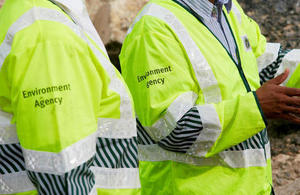Call for Projects Proposals under the UK Government’s Conflict, Stability and Security Fund (CSSF) Programme for 2020-2021
The British Embassy Kyiv is accepting project proposals from organisations to implement the “Youth engagement: citizens participation through enhanced social action skills and tools” project for the 2020-2021 implementation cycle.
Background
The UK remains committed to supporting Ukraine and its people on the road to democratic development, stability and prosperity. We are funding a range of peacebuilding and conflict management projects, alongside humanitarian assistance to enable Ukraine to deliver key reforms and strengthen democratic institutions.
We believe that active citizenship and engagement of young people in the life of their country at community level could increase Ukraine’s chances of building democracy and better future for its citizens.
This year the British Embassy Kyiv is seeking to support projects in Ukraine that focus on the following theme:
Youth Engagement: promote youth’s (school leavers, students and young professionals) active participation in the lives of their community and their country through contribution to the work of their local councils, enhanced social action and increased implementation of citizen-supported initiatives at community level.
Scope
Bidders should set out a proposal to:
- develop tools, mechanisms and programmes to enhance youth social activism and capacity to play leading roles in their communities
- facilitate processes for youth-initiated social and environmental action projects in local communities as well as their collaboration with youth in other regions of Ukraine
- deliver capacity building opportunities (workshops, seminars both face-to-face where possible and on-line) for practical skills development and platforms for youth networking and collaboration with their local authorities and communities
- disseminate best practices at the national level and engaging youth around Ukraine
Bidders should feel free to propose additional project components within the theme.
Institutional scope
The project would be expected to work with both civil society/local youth organisations and local governments and, where possible, build bridges and connections with both, leading to institutionalisation of relationships. Successful bidders will need to set out their plan to identify and recruit project partners to work with.
Geographic scope
Bidders are asked to propose and justify a geographic scope for the project within the resource envelope set out in the Terms of Reference (ToR), we would not encourage only Kyiv centric proposals.
Preference will be given to proposals aiming to work with young people in the oblasts of Ukraine where there is evidence of the least engaged young people or higher level of migration from the oblasts. Such evidence should be provided in the project proposals.
Outputs
The expected project outputs are:
- opportunities available for informal and formal processes of youth involvement and collaboration with their local authorities for building more cohesive and resilient communities (including in the context of local elections); and
- opportunities for institutionalisation of youth engagement and enhancing their active citizenship through participation in local youth councils and life of their community
Requirements
Bidders should demonstrate in their proposals how their project will:
- offer equal opportunities available for men, women, boys and girls to engage in social activism
- ensure project delivery is conflict and gender sensitive
- adapt activities to minimise the impact of COVID-19 on delivery including if lockdown restrictions are tightened.
- contribute to GoU programme and strategy for youth development – State targeted Social Programme “Youth of Ukraine for 2021-25” and Strategy of Youth Policy until 2030 (in development)
- apply innovative methods of youth engagement with local politics and current economic, security, social, health and environmental issues as decentralisation process develops in Ukraine
The project could consider small seed grants is support of youth activism and community projects implementation.
Deliverables
This will be a pilot project with the possibility of extension. Suppliers should deliver by 1 February 2021 a Scaling-Up Plan to inform the Embassy’s decision on whether to commission a project extension.
Suppliers should define further deliverables in their proposals based on the specifics of their proposed project.
Proposal guidance:
Pilot projects will be funded for 6 months from 1 October 2020 to 31 March 2021 (with the possibility of extension for another year).
The selected implementer must be able to receive project funding in GBP to an existing GBP account or open a GBP bank account for the project.
Estimated budget is up to £200,000. The final amount will be agreed with the selected implementer based on their proposal
Interested parties are required to submit the following documents: CSSF Project Proposal Template (ODT, 26.7KB) and CSSF Activity-Based Budget Template (ODS, 16.2KB).
Potential implementers may combine efforts and submit their project proposals in consortium of several organisations (implementers). Those could be both international and local organisations working in Ukrainian context.
Bidders are free to develop their own methodology and should set this out in their proposal.
Recommendations and requirements to project budgets are listed on tab 1 of CSSF Activity-Based Budget Template (ODS, 16.2KB).
Please note that we are unable to fund academic courses or research, English language tuition, the purchase of IT or other equipment under this Fund.
Eligibility
To be eligible, the proposals must:
- demonstrate extensive experience in and understanding of working with local communities and particularly young people in Ukraine
- understand the specifics of issues related to youth disengagement and political and economic challenges that influence youth participation in decision-making process affecting their life
- demonstrate strong relationships with key stakeholders in youth engagement process
- be legally able to carry out the activities indicated in the bid
- demonstrate sufficient operational, human resources and expert capacities (local and/or international) to deliver expected results
- be able to offer innovative methods that would contribute to achieving the set deliverables therefore innovative methodologies that make use of digital and other creative tools to deliver the objective are particularly welcome
- the work should include a plan to take success to scale in a way that does not fully rely on government systems
Assessment
Proposals will be assessed against the following criteria:
| Criteria |
Points |
| Context and need for the project |
20 |
| Purpose and Theory of change |
20 |
| Realistic outcomes and outputs which are achievable within the funding period |
20 |
| Clear monitoring and evaluation procedures |
10 |
| Stringent risk matrix |
10 |
| Value for money and financial accountability procedures |
10 |
| Conflict and gender sensitivity |
15 |
| Communication and visibility |
5 |
| Implementer’s background and relevant experience (a brief history and examples of similar projects undertaken) and capacity to deliver (including team composition) |
15 |
| Demonstrating sustainability of project outcomes |
5 |
| Alignment of the project budget with requirements and recommendations listed in the CSSF activity-based budget (ABB) template |
30 |
| Total |
160 points |
Receipt of project proposals
- The submission deadline for bids is at 23:59 (Kyiv time) on 15 August 2020. Late submissions will not be considered. Proposals can be submitted at any time up to the indicated deadline. British Embassy Kyiv is not responsible for non-receipt. Proposals submitted before that deadline will remain unopened until then.
- When submitting, please indicate “Youth Engagement” in the subject line of your e-mail.
- Project proposals must be submitted using the standard forms only (CSSF Project Proposal Template (ODT, 26.7KB) and CSSF Activity-Based Budget Template (ODS, 16.2KB)). Please make sure your files do not exceed 5 MB in size. They must be free from any form of virus or corrupted contents; otherwise, you might not be able to submit your proposal.
- Project proposals must be submitted to the following email: cssf.programme@fco.gov.uk. Bidders must upload documents in standard Microsoft Office formats (Word, Excel).
- Only shortlisted bidders will be notified via email before or on 26 August 2020. The selected bidders will be asked to complete a Due Diligence Assessment (form will be sent to them) and will be invited for an online interview between 2 and 3 September 2020.
- British Embassy Kyiv seeks to finalise the contract award with the selected implementer by 25 September 2020.
Key dates
| Submission deadline for bids |
23:59 (Kyiv time) on 15 August 2020 |
| Notification of shortlisted bidders |
26 August 2020 |
| Shortlisted bidders complete Due Diligence Assessment (DDA) |
By 17:00 (Kyiv time) on 31 August 2020 |
| Online interview with shortlisted bidders |
2 – 3 September 2020 |
| Project start date |
01 October 2020 |
CSSF Programme team: CSSF.Programme@fco.gov.uk
Questions should be submitted to CSSF.Programme@fco.gov.uk by 15:00 (Kyiv time) on 03 August 2020.
Frequently Asked Question will be answered by CSSF Programme team and published on the official website (https://www.gov.uk/) by 07 August 2020.
Note
Bidding is competitive and it is likely that only one selected project will receive funding. The British Embassy Kyiv reserves the right to accept or reject any or all bids without incurring any obligation to inform the affected applicant(s) of the grounds of decision-making. Due to the volume of bids expected, we will not be able to provide feedback on unsuccessful bids.

